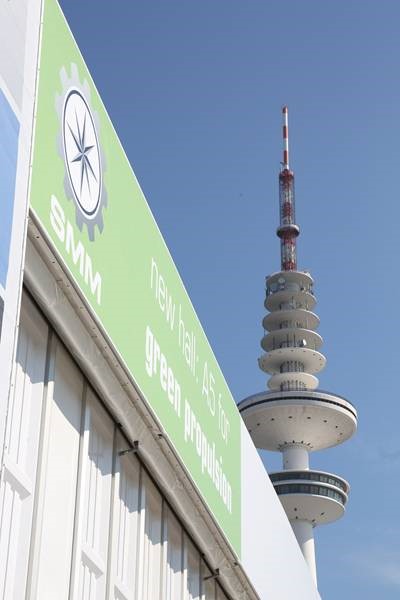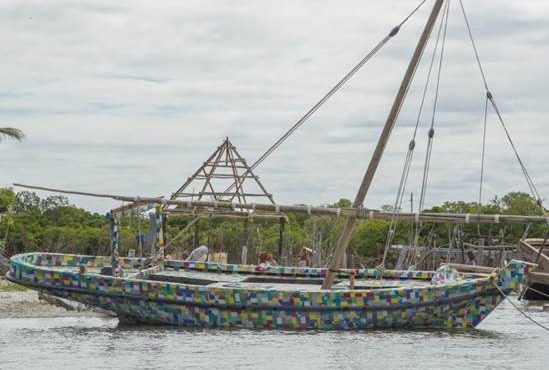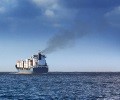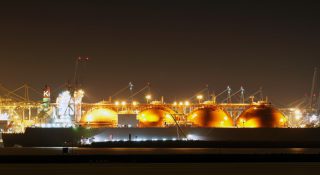Green Shipping: Toward a Clean Future
Photo: SMM
The International Maritime Organization (IMO) has announced its targets of cutting greenhouse gas emissions from global shipping in half by the year 2050, and to make ships entirely CO2-neutral before 2100.
But long before that, the so-called sulphur cap will take effect: From 2020 all oceangoing ships must run on fuel that contains no more than 0.5 per cent of sulphur. According to estimates by classification society DNV GL, up to 70,000 ships will be subject to this requirement. Shipowners must make highly consequential investment decisions regarding propulsion technologies and exhaust gas cleaning systems. Additional investments are necessary for ballast water management. The relevant IMO Convention requiring owners to install appropriate systems went into force last year.
Alternative technologies – technology alternatives
The SMM trade show will open its doors in less than three weeks, offering a comprehensive overview of leading-edge green shipping technology. At the leading international maritime trade fair in Hamburg, leading manufacturers such as MAN Energy Solutions or Wärtsilä will showcase low-emission propulsion solutions. Of particular interest is liquefied natural gas (LNG) as a ship fuel, which is generally considered by the industry to be an ideal transitional technology on the way to zero-emission shipping. While ferries and passenger ships pioneered the technology, container ship owners have followed suit recently, ordering numerous LNG-powered container vessels. Meanwhile the bunkering infrastructure is taking shape, as well, and more and more ports can call themselves “LNG ready”. Furthermore, solutions such as the “LNG PowerPac” by Becker Marine Systems demonstrate that LNG is also a great way to supply electricity to ships at berth.
As for the fleet in service, retrofitting LNG equipment and machinery is frequently unfeasible for financial reasons. Exhaust gas cleaning systems, so-called scrubbers, can be a viable alternative for ships in operation. Shipyards offering installation services will be represented at SMM, as will be all major system suppliers, such as Alpha Laval, in Hall A1.
For owners ready to select a ballast water management system, a visit of SMM may provide key insight. According to experts, the enormous demand for these systems may lead to supply shortages in the medium term. The roster of SMM exhibitors includes all the leading vendors whose systems have been vetted and certified by IMO and the US Coast Guard; their experts will be present at the fair stands to provide background information and answer questions.
Wide range of experts and fields of expertise
“At the four-day SMM decision-makers and experts will be able to meet up with colleagues from around the world in one place, which will spare them many weeks of business trips. As at the previous SMM, the Green Route will guide visitors to exhibition stands relevant for green technologies in all 13 exhibition halls. Hall A5 will again be dedicated exclusively to green propulsion, and at the global maritime environmental congress (gmec) international experts will gather to share their views. This event should not leave any questions unanswered,” said Claus Ulrich Selbach, Business Unit Director – Maritime and Technology Fairs & Exhibitions at Hamburg Messe und Congress GmbH. Many of the 2,289 exhibitors at SMM have made the protection of the environment a core concern, for example the classification society ABS, the heavy machinery company Caterpillar, the coating specialist Hempel, the transmission manufacturer Reintjes, or the engine manufacturer Voith Turbo. The initiators of “The World’s Greenest Cruise Ship” will likewise be present at the fair. Visitors who would like to learn more about the “Ecoship” should go to Stand 110 in Hall A5.
Innovative products, fascinating conferences
Sustainability is one of the overarching topics of this year’s SMM, a fact reflected in every single hall. Environmental issues will be discussed in many of the subject-specific conferences, as well, first and foremost at the gmec on 5 September. Under the motto “Compliance – Control – Champions”, all panel discussions will revolve around current and future challenges resulting from tighter environmental regulations. In addition, experts will explore the exceptional situation of the cruise industry which takes a leading role in environmental protection. The discussion at the Offshore Dialogue on 6 September will focus on ways to mine deep-sea mineral deposits without causing major harm to the environment. In addition, the participants will examine what requirements ships should meet in ecologically highly sensitive regions such as the Arctic.
Measured in volume of cargo transported and distance covered, ocean shipping is already one of the most eco-friendly modes of transport. More than 50,000 oceangoing ships in operation around the world account for no more than 2.2 per cent of global CO2 emissions. Nevertheless, the maritime industry is committed to improving its environmental footprint and has set ambitious climate protection goals for itself. SMM 2018 is the right platform to learn about the technologies that will enable the sector to live up to this commitment.
Source:MarineLink




